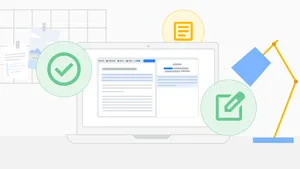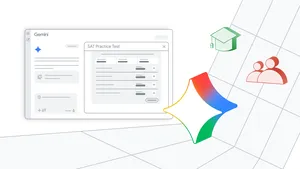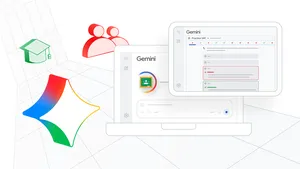Active listening apps on Chromebooks foster future skills

Editor’s note: Today’s post is by Michael F. Opitz, professor emeritus of reading education at the University of Northern Colorado and author of Listen Hear! 25 Effective Listening Comprehension Strategies. At today’s Google Next event, we’re announcing a new program to offer active listening apps on Chromebooks. Visit g.co/educhromebookapps and follow @GoogleForEdu for details.
In school, students are often told “be a good listener,” but listening is not just about paying attention and following instructions in class. Active listening helps students develop skills for future success and is a highly desirable quality for new hires, according to a report by Fast Company. Active listening is the backbone of communication and literacy: if students learn to listen critically, and take away value from what they’re listening to, their comprehension improves—and so does their ability to communicate.
As teachers, we’re good at reminding students to listen, but we need to teach them how to listen. There are techniques to doing this. For example, if a librarian is explaining how to get a library card, a teacher can preface the listening exercise by asking students what they think the librarian will talk about. When the librarian starts talking, the students know what to expect. After the exercise, the teacher can ask students about the steps the librarian outlined for getting a card. This is the essence of teaching active listening: letting students know what to listen for, and assessing their comprehension of the material.
To support students’ active listening skills, Google spoke with educators around the country about the most helpful active listening apps to use with Chromebooks and two kept popping up—Fluency Tutor and Listenwise. These apps integrate active listening into classrooms and lessons, and both apps can be used across a range of grades and subjects.

Developed by Texthelp, Fluency Tutor lets students record themselves reading different types of texts, like web content, Google Docs, and almost 500 leveled reading passages. Students can listen to their recordings and self-reflect before submitting for teacher feedback. Practice happens at each student’s own pace, which is less stressful than asking reluctant students to read aloud in front of the class. Reading assistance tools, like text-to-speech, picture dictionary and translate tools, are available to help students practice and reach proficiency.
Teachers can use Fluency Tutor to gain a view into student struggles with reading. They listen to the recordings and use features like comprehension questions to gauge understanding of the text and track progress over time. They also see the tools that students use to help them get through the assignment, so they can determine how to help students in the future – for example, supporting their vocabulary skills.

Listenwise is a collection of podcasts and public radio stories featuring NPR content that improves students’ listening comprehension while also drawing them into the world around them. Students can listen and read along with transcripts, and even slow down the recording to get a better grasp on complex subjects. Teachers can assign quizzes at the end of each listening assignment to assess which skills students need to improve. Teachers are able to gauge student comprehension in several areas, such as their understanding of the story’s main idea, knowledge of vocabulary, and ability to summarize the story.
“Listenwise helps me present interesting, timely and thought-provoking topics that students might not otherwise have a chance to consider,” says Lisa Goldman, a 7th grade teacher at Bird Middle School in East Walpole, Massachusetts. “Whether the story is war’s impact on preservation of historical artifacts, or how democracy in Athens is not so different from democracy today, each one gets my students contemplating topics outside the norm.”
To make these apps on Chromebooks accessible to a wide range of school districts, Google worked with Chromebook partners to create a special price when both apps are purchased as a bundle. They may be purchased alongside Chromebooks or on their own, and they are available as an annual subscription per license from Chromebook resellers in the US.
To learn more about these apps and other content programs including creative apps on Chromebooks, visit g.co/educhromebookapps, check out the apps’ websites, or contact your school’s Chromebook reseller.






